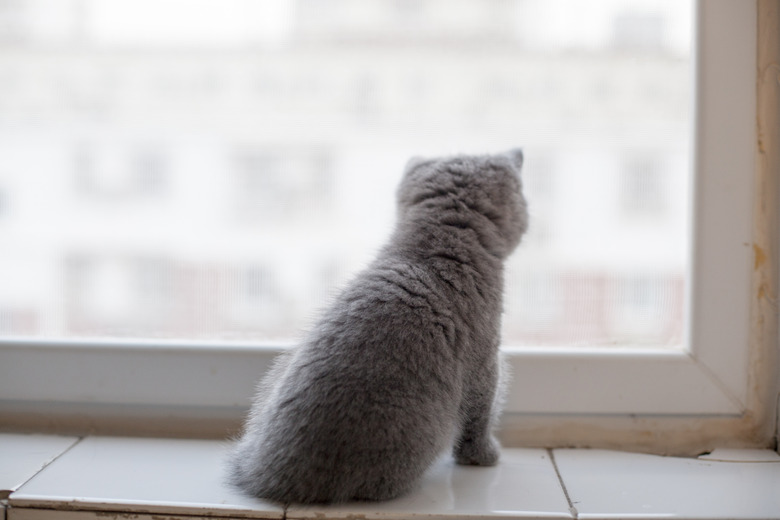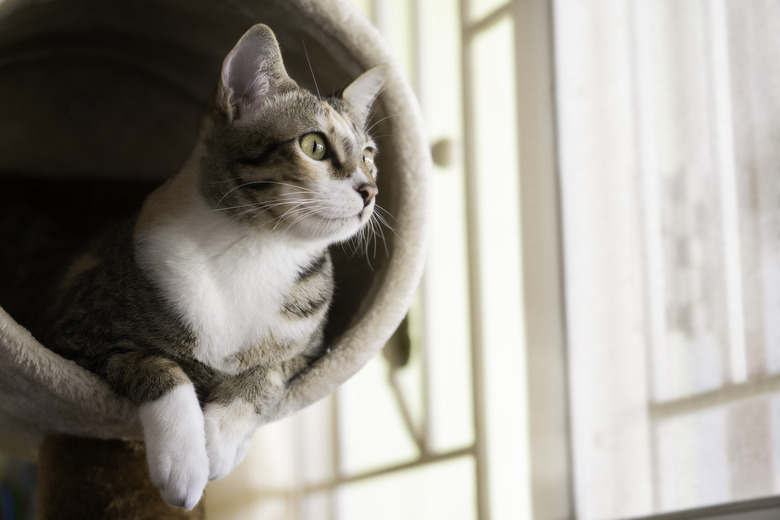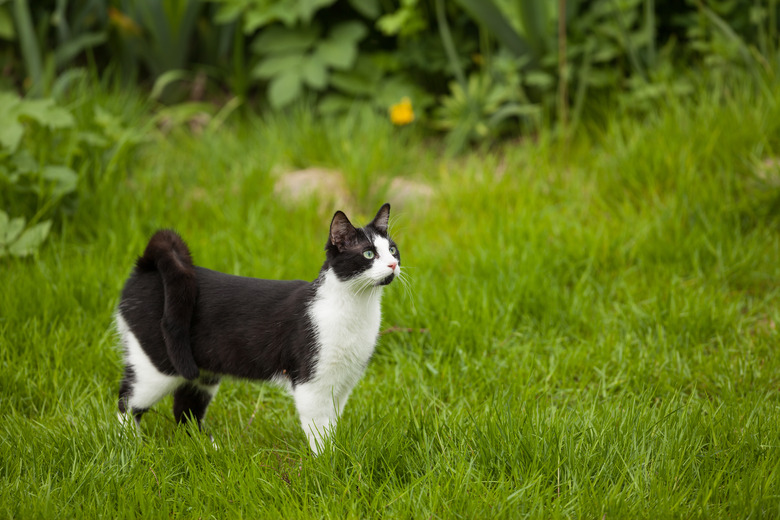Do Cats Need To Be Allowed Outside To Be Happy?
When we welcome pets into our homes, they become such integral parts of our families that it can be easy to forget their wild roots. Of course, sometimes even the most domesticated animals remind us that they still have the urge to roam free. Dogs love walks, but they're usually content to only venture out with their owners.
Cats, on the other hand, seem to love to go on solo explorations. But do cats need to be allowed to go outside to be happy? If you're antsy about letting your cat outside, are you destroying something fundamental to its happiness and well-being?
Here's what you need to know about how going outside affects your cat's happiness.
Do cats want to go outside?
Do cats want to go outside?
The idea that cats want to go outside makes sense. Cats are predatory by nature, and the desire to hunt is still alive within even modern domesticated cats. The most significant thing your cat loses when you decide to keep them exclusively indoors is stimulation. The act of prowling and hunting provide cats with exercise and excitement.
If your cat seems desperate to go outdoors, what they really might be craving is more entertainment and stimulation, both of which you can provide indoors. By providing your cat with indoor objects and toys that simulate outside adventures (scratching posts are stand-ins for trees, and interactive toys can provide the same stimulation of, say, hunting a bird), you can help curb that desire to escape to the great outdoors.
Indoor cats versus outdoor cats
Indoor cats versus outdoor cats
Some cats spend their entire lives inside, while others roam the world and survive on their own. Still other cats have humans who claim to own them, but these kitties come and go as they please and return mostly for food and intermittent affection.
What are the big differences in being an indoor or an outdoor cat from a feline's perspective? In terms of health and well-being, indoor life wins all around. The lifespans of indoor cats greatly eclipse those of their outdoor-only counterparts. Indoor cats live an average of 10-12 years (with some sticking around for 20 years or more), while outdoor-only cats survive just two years on average, according to Jacque Lynn Schultz, the Companion Animal Programs Adviser, National Outreach for the APSCA.
The American Humane Society also warns that outdoor cats (even those who split their time between indoor and outdoor environments) are at a much greater risk of contracting a number of contagious diseases, including feline leukemia (FeLV), feline AIDS (FIV), feline infectious peritonitis (FIP), feline distemper (panleukopenia, and upper respiratory infections (or URI).
Additionally, in the United States, many shelters and cat rescue groups will specifically ask you to commit to keeping your cat indoors when you adopt them.
TIPS: Keep an Indoor Cat From Being Bored
Cats who venture outdoors are also exposed to parasites like fleas, ticks, ear mites, intestinal worms and ringworm.
There are still other risks involved in letting your cat explore the outdoors. As the American Humane Society warns, they could be hit by cars, come into contact with people who might do them harm, encounter wild animals who would attack them, accidentally ingest poisons, or fall prey to the cliche (but very real) cat conundrum of getting stuck in a tree.
Indoor cats, by comparison, tend to be healthier and safer overall. The biggest threat to indoor cats, generally, is boredom. If you have an indoor cat, make sure you supply them with toys, perches and hiding places that will allow them to fulfill the primal desires that going outside would normally meet.
Are indoor cats happy?
Are indoor cats happy?
Rather than thinking of indoor cats as being happy, a better framework for understanding their mental health is whether or not the natural instincts of indoor cats are similarly fulfilled as their outdoor analogs.
In most cases, indoor cats are certainly healthier than outdoor cats, simply due to their relatively limited exposure to diseases, parasites and outdoor-specific dangers like predatory animals and zooming cars. For cats, happiness and fulfillment isn't so much about where they are, but, rather, what they get to do. An indoor cat with nothing to do but nap might be lethargic, overweight or bored. But an indoor cat with plenty of toys, scratching posts, perches and hiding places to occupy their minds and fulfill their animal instincts is probably pretty satisfied with its life.
Cat owners can also do creative things like installing perches by windows to allow their cats to soak up sunlight from inside, building a "catio," or placing bird feeders near windows to attract natural prey for cats to watch.
Signs that your indoor cat is happy
Signs that your indoor cat is happy
Happy indoor cats will display several tell-tale behaviors.
- They will play with their toys and interact with their environment.
- They will scratch their appropriate scratching toys.
- They will stare at everything.
- They will be relaxed with any humans and other pets who live in the house.
Will my indoor cat come back if they get outside?
Will my indoor cat come back if they get outside?
Most cats do return home if they are (intentionally or not) let outside. Cats are very territorial and will want to return to their own turf. Cats also have a good sense of smell and should be able to find their way home fairly easily in most cases.
It's also worth keeping in mind that male cats have a wider "home range" than female cats do and are more likely to venture further from home and be away for longer periods of time when they leave.
RELATED: Here's How Cats Find Their Way Home
In conclusion
In conclusion
An indoor lifestyle is the by far the best option to keep your cat safe, and you can keep them content with lots of enrichment and play. Indoor cats will let you know they're happy through their body language. They will lift their heads up high and let you rub the top of their heads. Happy cats meow and purr, and they will give you cuddles for days. Indoor cats, specifically, show their happiness with a proper balance of rest and play. They sleep like their lives depend on it (which they sort of do). While awake, a happy indoor cat will jump, scratch and pounce. This display of natural instincts is sure to point to a content cat.
Always check with your veterinarian before changing your pet's diet, medication, or physical activity routines. This information is not a substitute for a vet's opinion.



